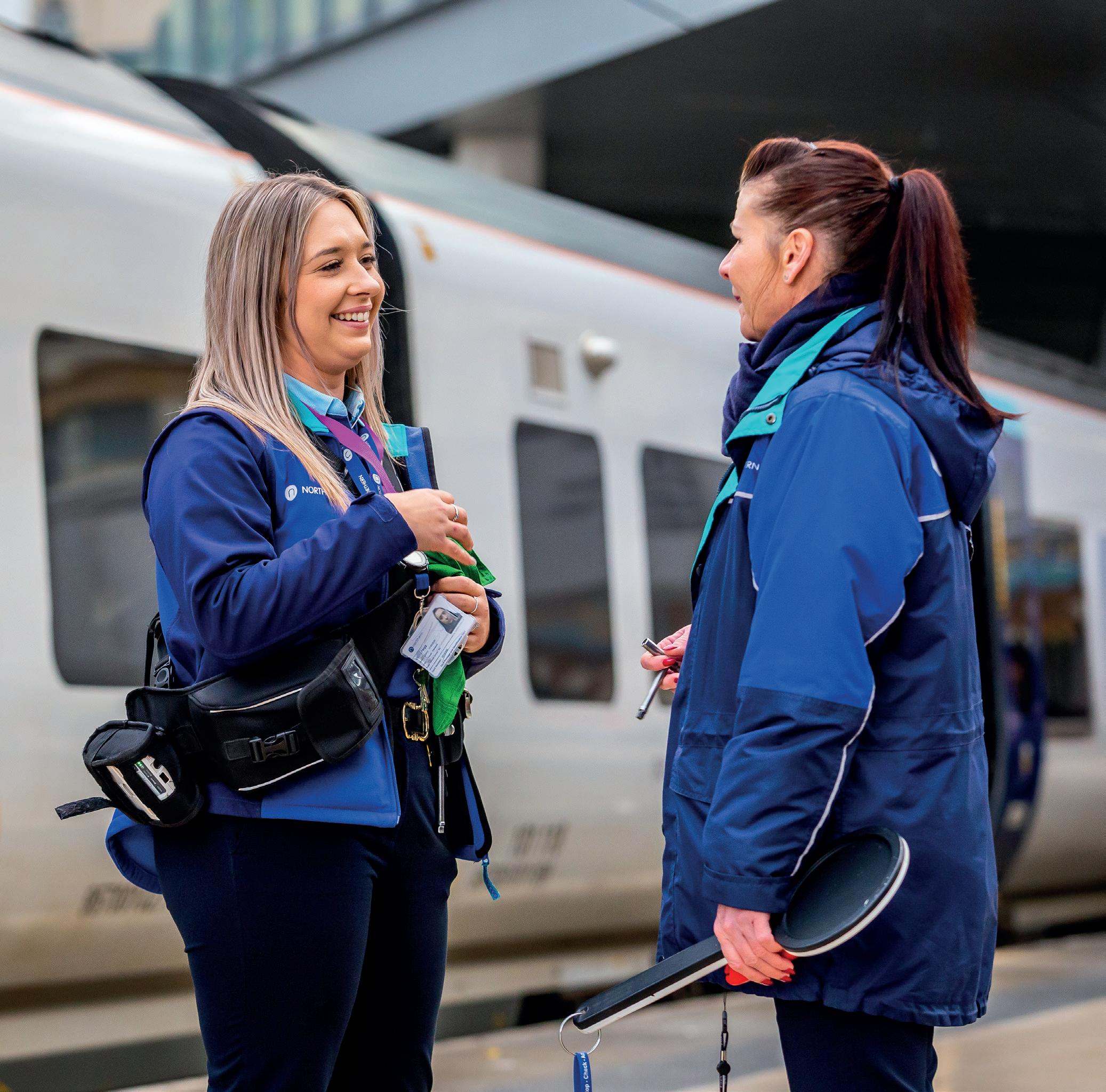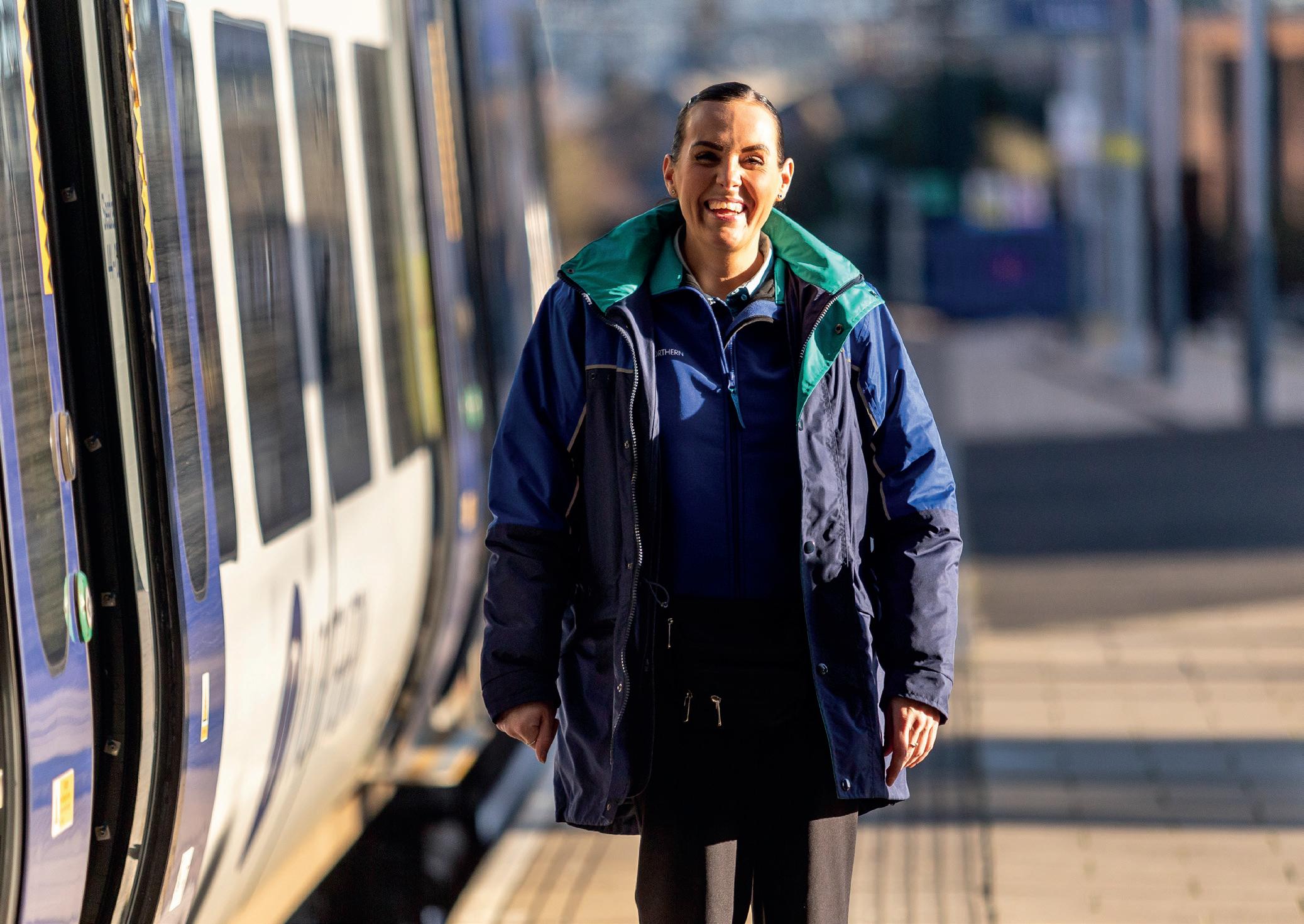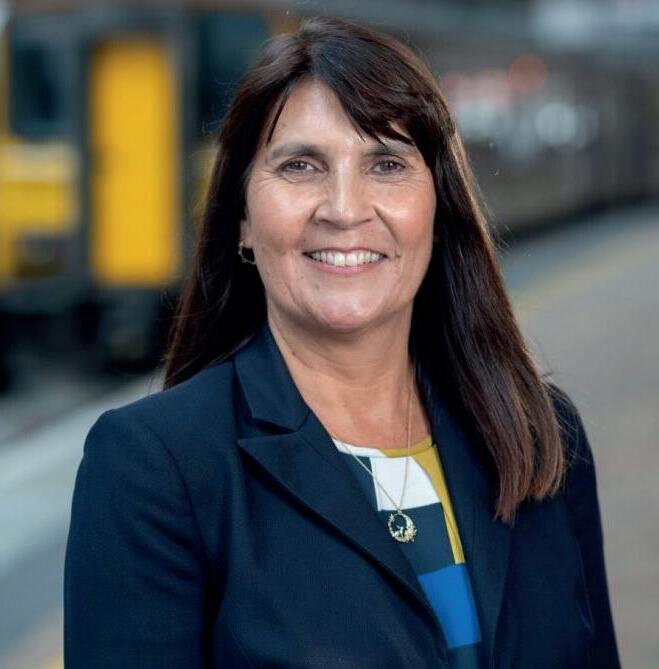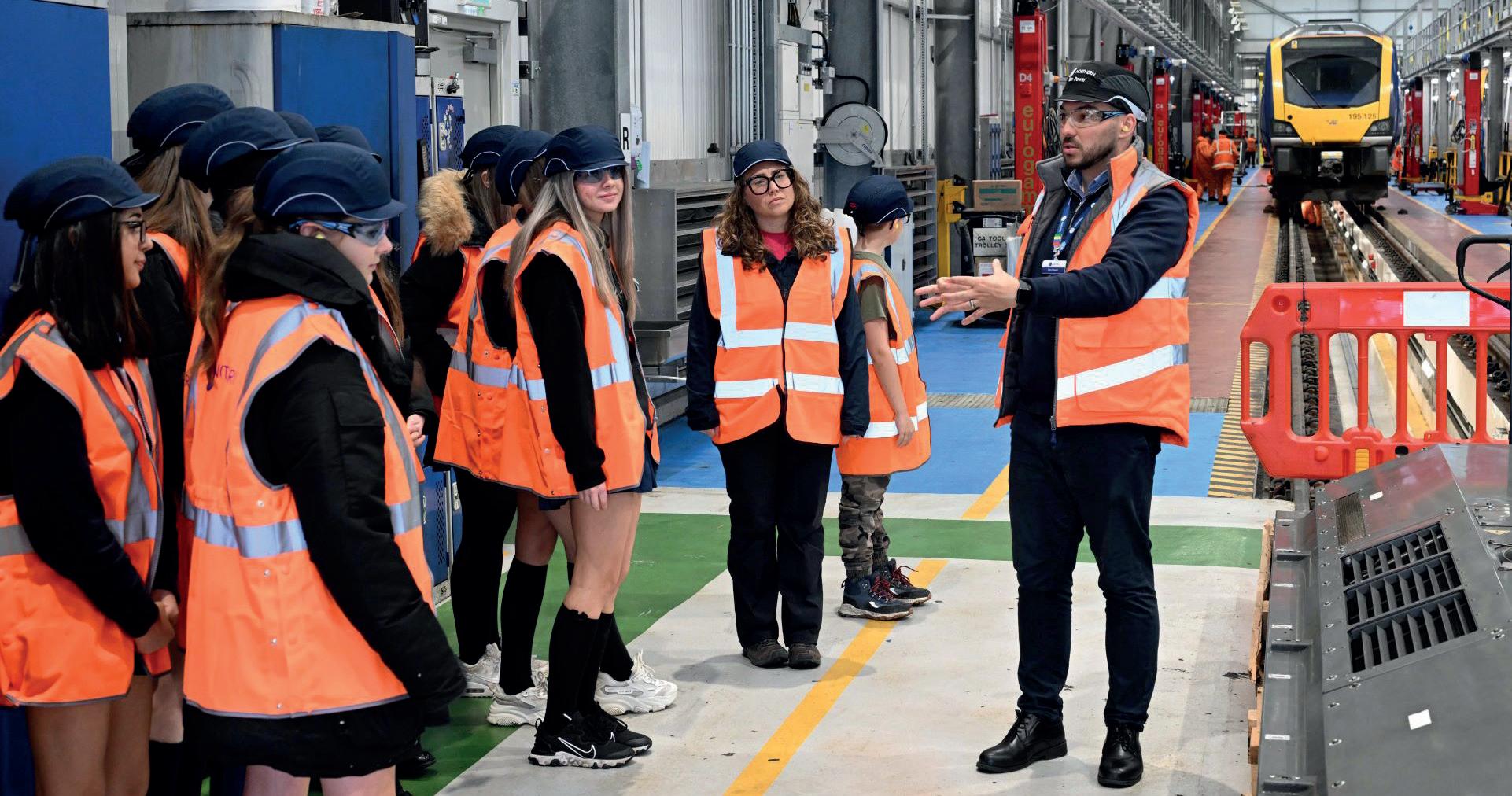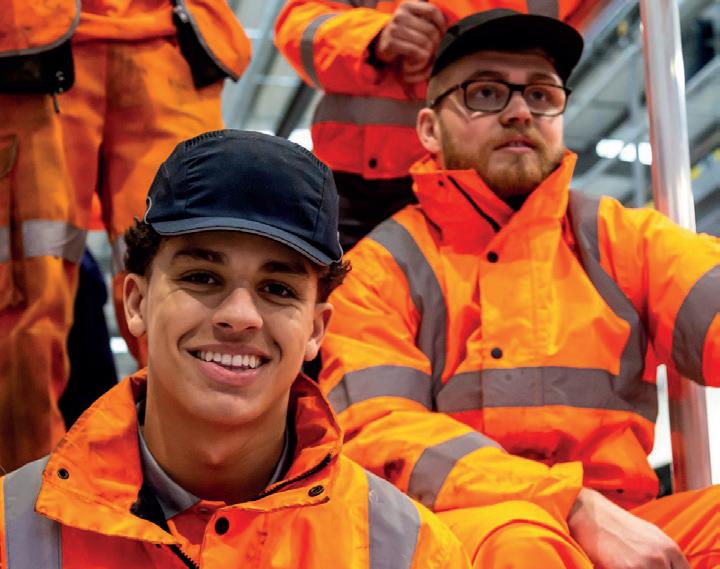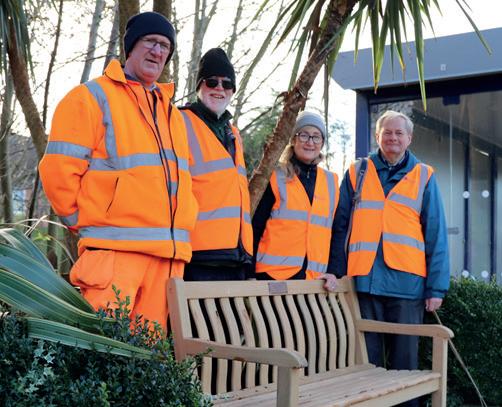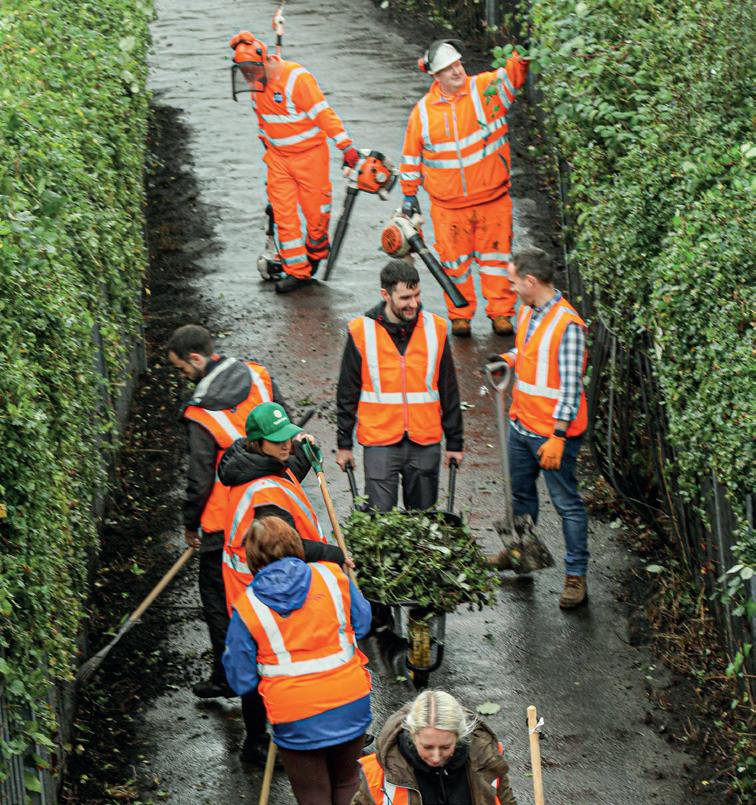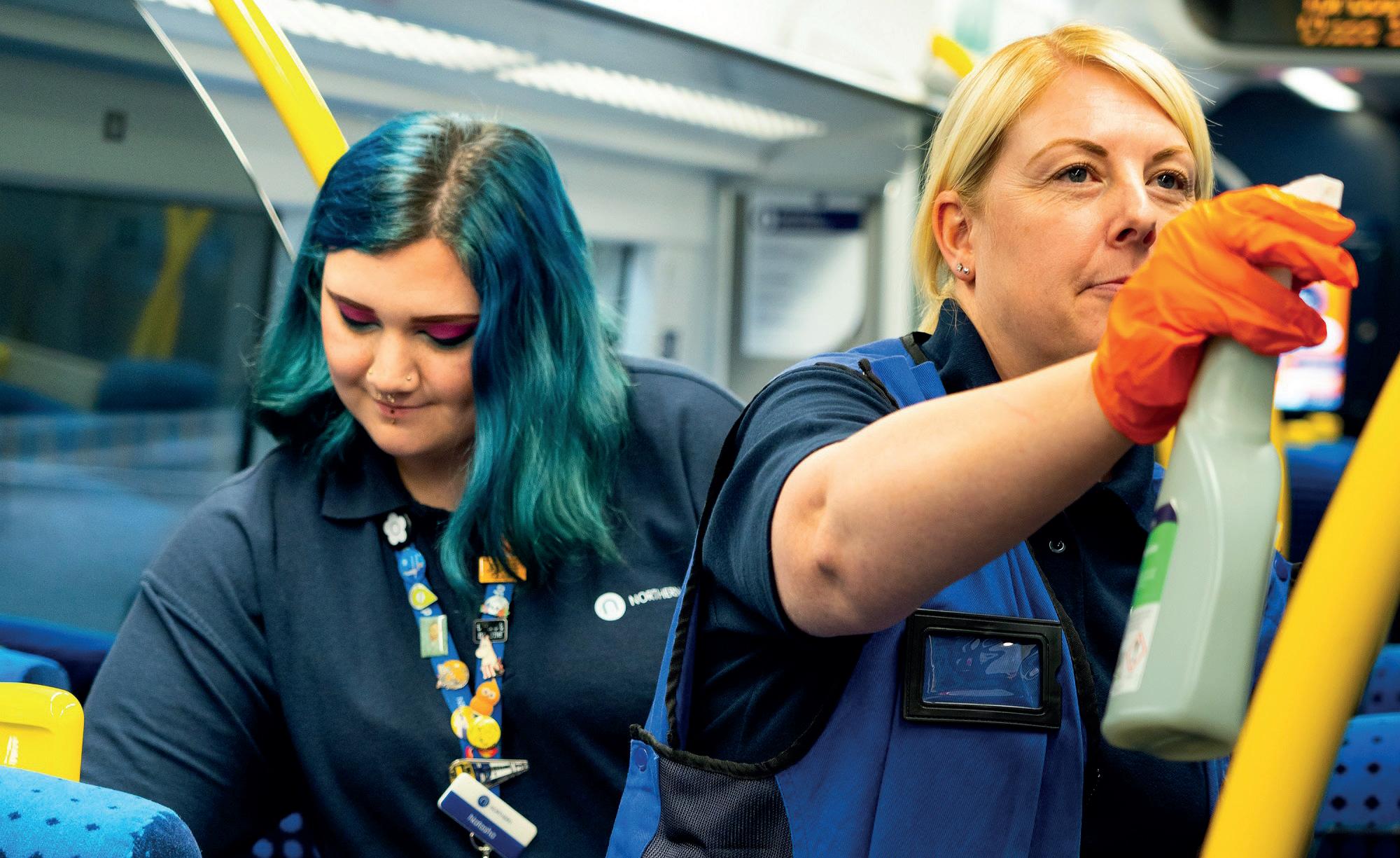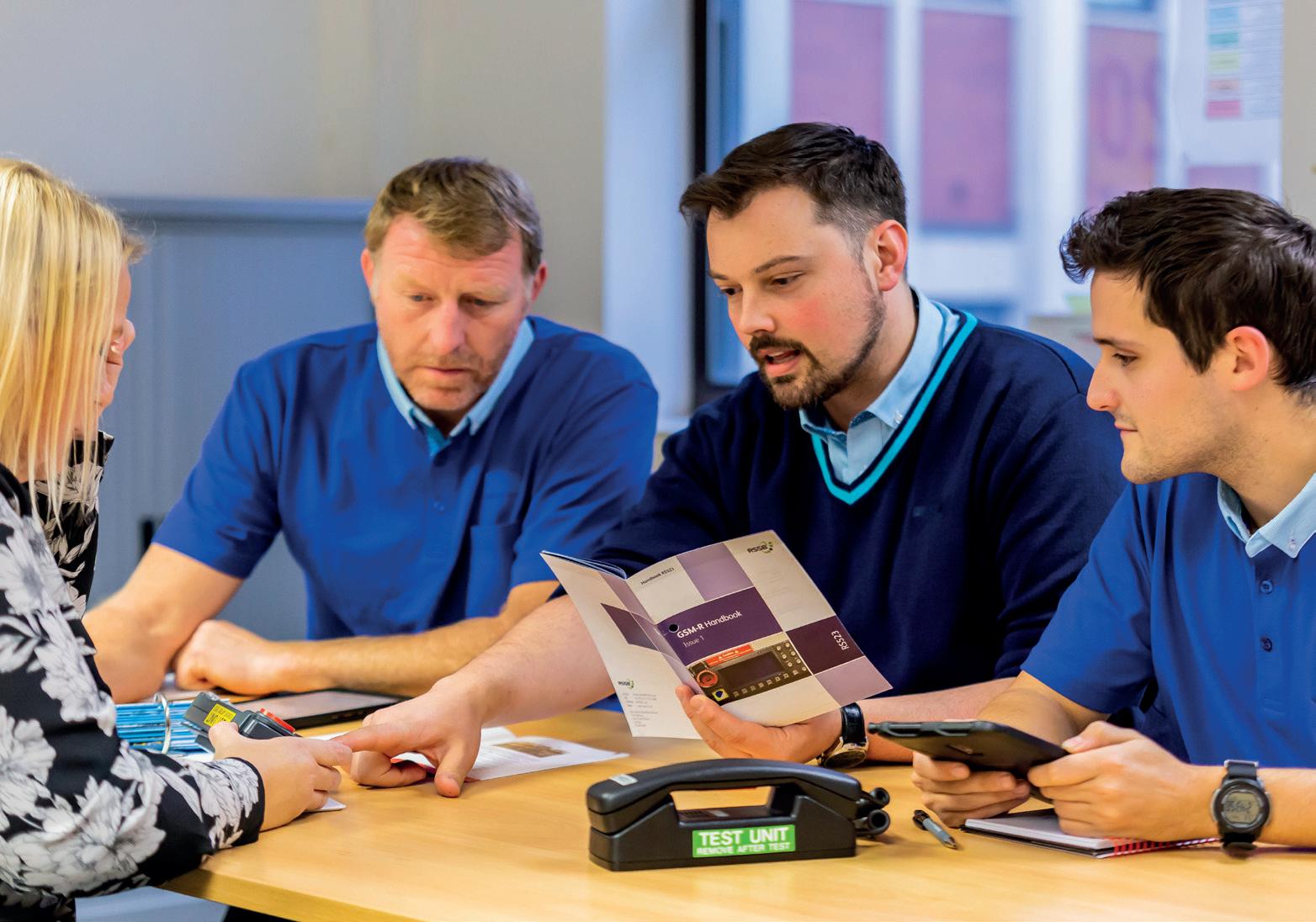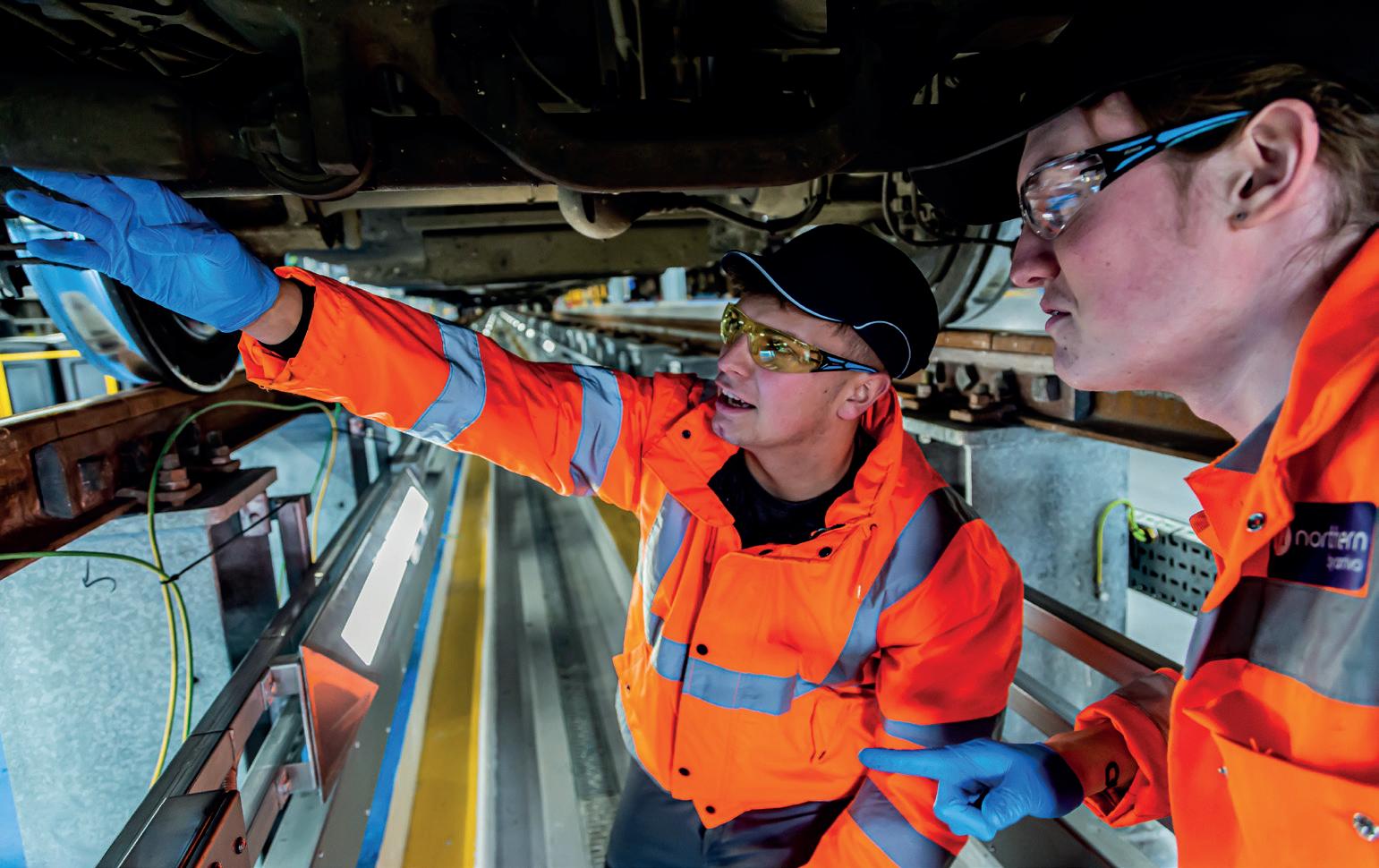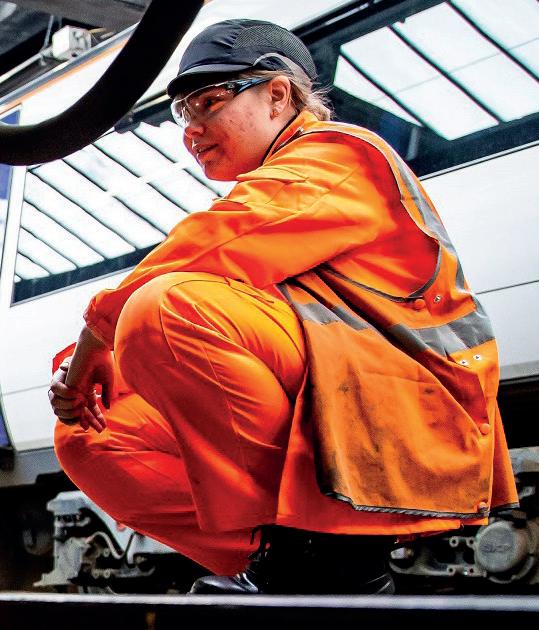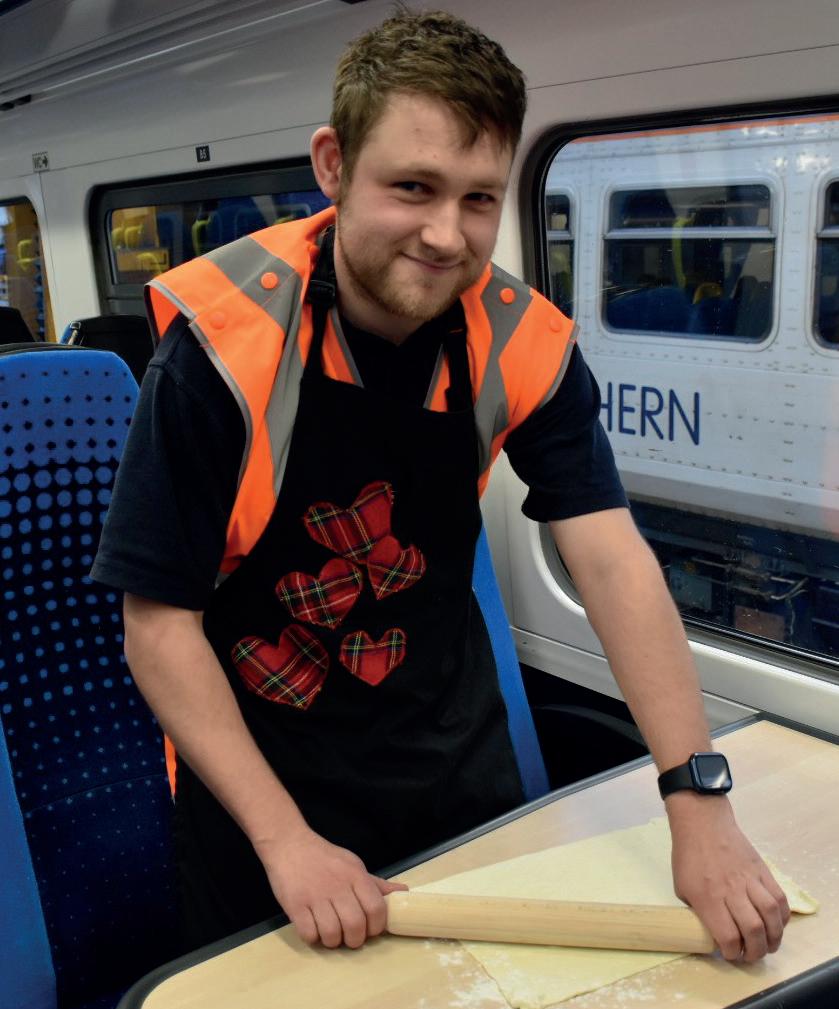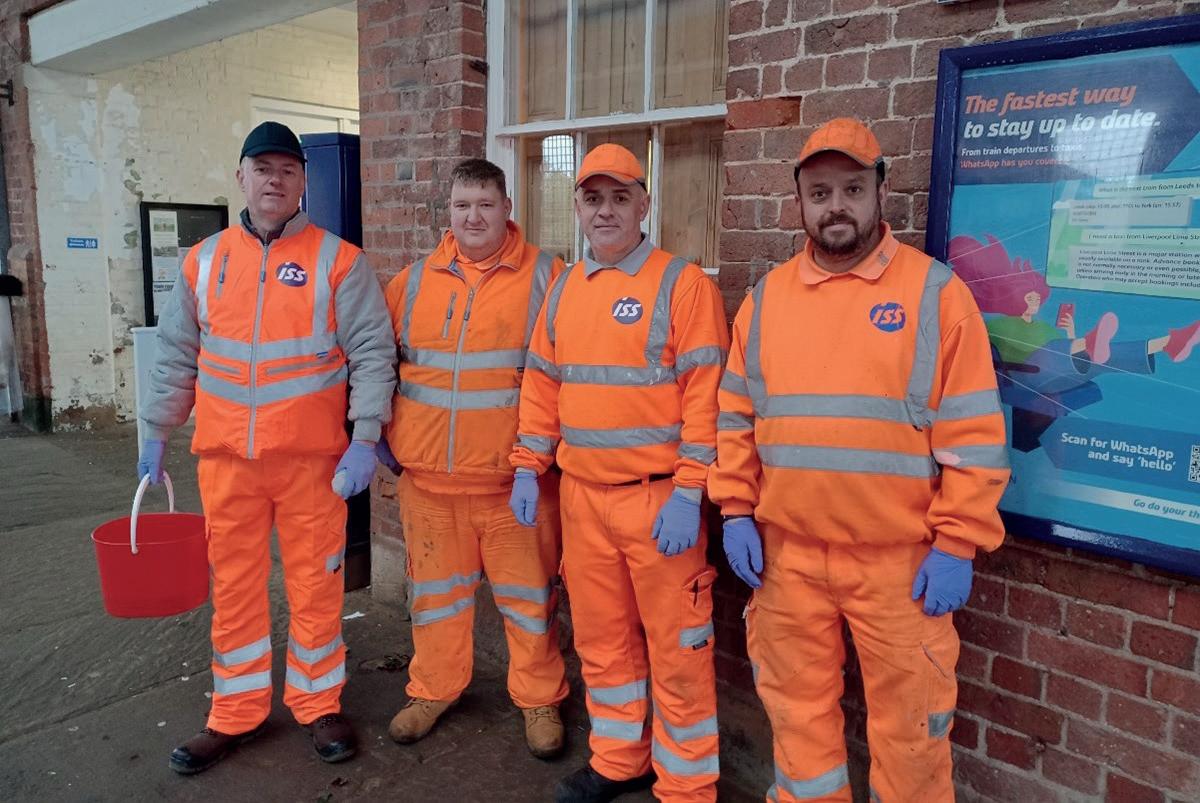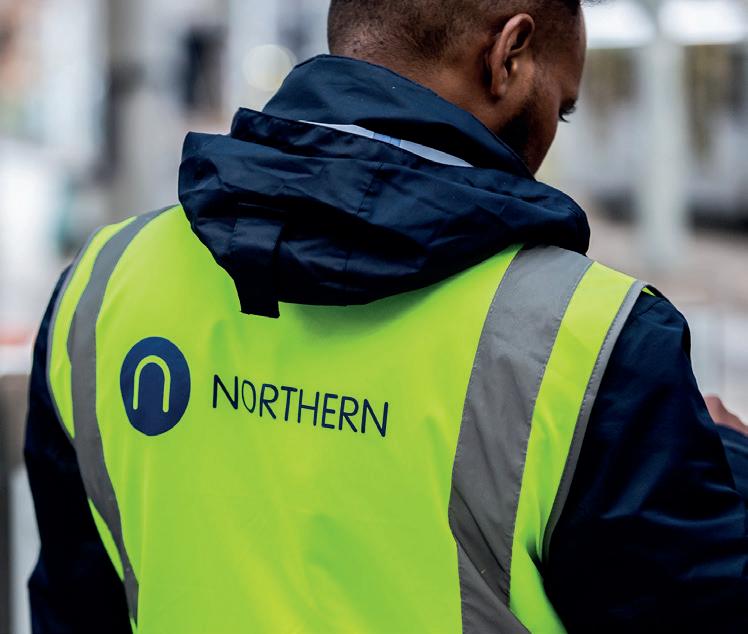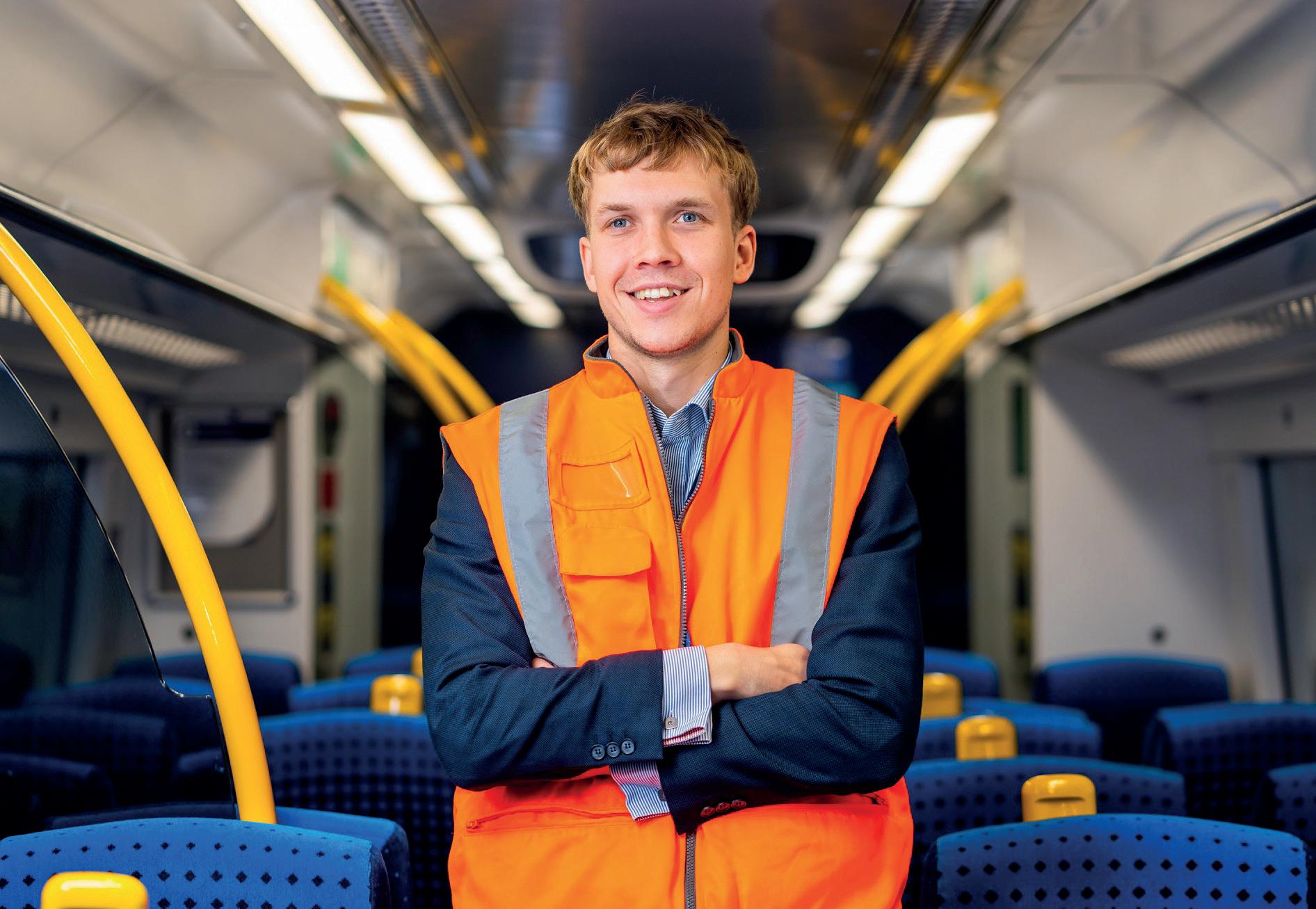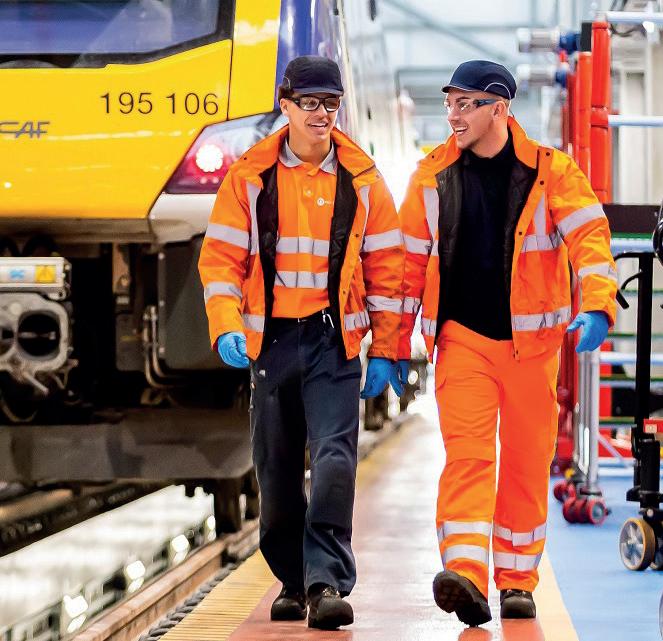2. Breaking Down Britain’s Barriers
The Purpose Coalition measures organisations against a set of sector-relevant social impact criteria. The Purpose Goals outline 15 interconnected impact barriers to opportunity. By drawing on expertise provided by academia and business, they are designed to specifically address some of the unique challenges facing the UK.
The Coalition’s cross-party work brings together the UK’s most innovative leaders, parliamentarians and businesses to improve, share best practice, and develop solutions for improving the role that organisations can play for their customers, colleagues and communities by breaking down barriers to opportunity.
The Purpose Coalition is chaired by Rt Hon Justine Greening, the UK’s former Secretary of State for Education, Transport and International Development; and led by Nick Forbes CBE, who recently served in Sir Keir Starmer’s Shadow Cabinet and leads the Purpose Coalition’s work with the Labour Party; Rt Hon Anne Milton, former Minister for Apprenticeships and Minister in the Department for Health and Social Care; and Lord Walney, former No 10 Advisor to Gordon Brown and Labour Member of Parliament for Barrow-in-Furness.
The Goals were designed following Justine Greening’s experience as Secretary of State for International Development when she led the UK’s delegation to the Convention of the United Nations (UN) that established the 2015 UN Sustainable Development Goals (SDGs). The Purpose Goals apply the SDGs in a UK context.
The SDGs as interlinked goals emphasised the interdependent environmental, social, and economic aspects of development and centralised the role of sustainability. At the time, Justine recognised how transformative a common set of accessible but ambitious goals could be in galvanising action to effect change. After leaving
Government in 2019, Justine established the Purpose Coalition and Social Mobility Pledge with the intention of motivating UK economic and social actors to improve social mobility in the UK.
The Purpose Goals focus on key life stages and highlight the main issues that need to be resolved to break down barriers to opportunity in the UK. They are intended to guide ambition, provoke action, and measure progress.
Northern is active across all 15 Purpose Goals but is specifically focused on showcasing best practice and upscaling its social impact in key areas of strategic expertise as identified in this Impact Report.
3. Benchmarking Northern’s Activity Against the Purpose Goals
This benchmarking reflects an independent analysis by The Purpose Coalition, evaluating Northern’s efforts to break down barriers across its network, highlighting strengths and areas for further impact.
Over several weeks, the Coalition engaged with Northern employees and assessed its practices through the Purpose Goals framework. Its qualitative approach provides a deeper understanding of culture, leadership, and real-world community impact—insights that quantitative data alone may miss.
Drawing on experience with over 100 UK employers, the Coalition’s assessment also considers context, intent, and emerging efforts that may not yet appear in standard metrics.
Quantitatively, the Coalition used the Index of Multiple Deprivation (IMD) to analyse key communities across Northern’s footprint. This UK government tool ranks areas by seven deprivation domains, including income, education, and health. Each location was scored, population-weighted, and ranked—providing a clear view of community needs and where Northern can go further.
destinations Post 16+ 3
Positive destinations are key to unlocking potential, improving social mobility, and driving economic growth. As individuals move from education to employment, access to meaningful opportunitieswhether academic, vocational, or through apprenticeships - is vital for long-term personal and professional success.
Purpose-led employers, especially in sectors like rail, play a crucial role in this transition. Rail connects people not just geographically but also to education, jobs, and broader opportunities. It’s about creating access and building the skills and confidence needed to succeed in a changing economy.
3.1. Goal 3: Positive Destinations Post 16+
Positive
3.1.1. Overview of the People Strategy
Northern’s People Strategy is a comprehensive plan designed to improve the employee experience and align with the company’s long-term goals up to 2030.
With a focus on efficiency, enabling growth, and building an inclusive workforce, the strategy is structured around four key objectives: embedding an inclusive culture, evolving workforce planning to meet future skills needs, providing clear and accessible career paths, and transforming training programmes to create opportunities for all.
The strategy aims to create a workplace where employees can perform at their best and thrive in a supportive, forward-thinking environment. Recent restructuring within the People function has introduced new capabilities to improve talent management and succession planning, ensuring a mature and strategic approach to workforce development.
Northern’s commitment to diversity, flexibility, and employee wellbeing positions it as a truly purpose-led employer, focused on ensuring each of its staff are supported in achieving a positive destination. Aligning its people strategy with business objectives, Northern is building a well-supported workforce ready to meet future challenges and opportunities.
3.1.2. Varied and Inclusive Pathways
Northern is committed to creating inclusive employment pathways that reflect the diversity of the communities it serves.
Through programmes like the Sector-Based Work Academy Programme (SWAP), it offers job seekers tailored training in employability and customer service, along with work experience and interview opportunities. These initiatives equip participants with essential skills such as CV writing and interview preparation.
Social mobility is a core priority. Northern’s training and career development programmes include both formal and informal mentoring. Notably, 34% of conductor and driver trainees come from disadvantaged areas, and 20–30% join without formal English or Maths qualifications. These roles offer salaries well above the UK median, especially for drivers.
This focus is critical in areas like Carlisle, where Northern has a strong presence. According to the Purpose Coalition’s IMD assessment, 17.65% of Carlisle’s population rank in the top 10% most deprived for education, skills, and training.
Northern also targets underrepresented groups—veterans, military spouses, and women—with a goal of raising female new hires to 30%. Its Future Careers programme aims to attract candidates from lower socio-economic backgrounds and expand access to opportunities.
A dedicated working group supports alignment across social value, employer branding, inclusion, and employee experience - ensuring outreach reflects the full range of regional talent. With over 7,450 employees and apprentices across the North, Northern continues to grow its impact.
3.1.3. Internal Mobility and Career Development
Northern prioritses internal mobility and career development, recognising the value of nurturing talent to build a high-performing, inclusive workforce.
A significant share of roles is filled internally, supported by clear career paths and consistent communication about progression opportunities. In the past year alone, Northern delivered over 46,000 hours of training, underpinned by a strategy of continuous upskilling.
Training schools across the network are equipped with advanced tools - including virtual reality, AI, and upcoming motion-articulated simulators - providing modern, engaging learning experiences. Northern’s e-learning platform further supports flexible access to tailored training for personal and professional growth.
As a leading rail apprenticeship provider, Northern supports over 850 active apprenticeships in roles such as train crew, station operations, and retail. It also offers functional English and Maths training to ensure accessibility for diverse learners. Over the past six years, 2,500+ colleagues have graduated from Northern’s training programmes, including 1,500 conductors and nearly 1,100 train drivers. Ofsted recognises Northern as an ‘Outstanding’ Main Provider for apprenticeships.
Northern’s investment in motion-articulated simulators will enhance workforce training and promote awareness of careers in rail. As an approved training school for the Institute of Environmental Management (IEMA), it also delivers professional qualifications to both staff and industry partners.
Through focusing on flexibility, autonomy, and innovation, Northern empowers its workforce to reach their potential - reinforcing its status as a destination employer and industry leader.
Northern is building a supportive and empowering workplace.
3.1.4. Reward and Recognition
Ensuring employees feel valued and supported is a critical aspect to ensuring positive destinations for all colleagues, regardless of their background.
Northern offers generous benefits packages that include pension schemes, salary sacrifice options, and complimentary train travel for employees and their families.
To celebrate contributions and achievements further, Northern has introduced the Northern Lights recognition programme. The programme combines financial and non-financial rewards, providing employees with meaningful recognition for their efforts, instilling a culture of appreciation and engagement.
On top of direct rewards, Northern also acknowledges the need for creating a positive and inclusive work environment. Leadership development, inclusive practices, and comprehensive training programmes ensure that all colleagues have opportunities to thrive and succeed. Through these combined efforts, Northern is building a supportive and empowering workplace, reinforcing its position as an employer of choice in the rail industry.
To formalise recognition efforts, Northern launched the Northern Lights Recognition Programme, featuring digital ‘thank you’ notes (WOW cards), prize draws, and monthly “Northern Sparks” awards with financial incentives. These reward systems promote an inclusive, appreciative culture. Notably, awards are sourced from social enterprises, reinforcing Northern’s commitment to supporting purposeful businesses while celebrating employee impact.
3.1.5. Attracting and Supporting Diverse Talent
Achieving positive outcomes for colleagues and communities across the North starts with attracting and supporting a diverse workforce that reflects the region.
Northern promotes transparency in salaries and job descriptions, ensuring job adverts are inclusive and accessible. Its recruitment strategy includes geo-targeted campaigns - especially aimed at women - and supportive policies such as flexible working and family-friendly benefits to improve recruitment and retention.
To challenge industry stereotypes, Northern engages communities through early education, targeting low socio-economic areas and offering graduate programmes, work placements, and schemes for women returning to work. These efforts aim to inspire the next generation of rail professionals.
Northern is focused on increasing representation of women and ethnic minorities - currently 20% and 8% of its workforce, respectively, compared to the UK averages. It is also working to attract younger candidates, promote flexible roles, and improve inclusivity for neurodivergent applicants by offering reasonable adjustments and inclusive processes.
A central recruitment team manages 98% of Northern’s 1,000–1,200 annual hires, aligning hiring with business goals. About 36% of hires are internal, reflecting Northern’s commitment to internal mobility and staff development.
Northern is also expanding its talent pool beyond traditional rail sources. Only 12% of new hires come from within the transport sector, with others joining from fields like retail, healthcare, education, and engineering. Early careers are a key focus, with apprenticeships and student placements now comprising over 10% of Northern’s 7,000+ workforce.
Northern promotes transparency in salaries and job descriptions, ensuring job adverts are inclusive and accessible.
3.1.6. Improving Candidate Experience with Technology
Northern is transforming its recruitment processes by investing in cutting-edge technology, including AI-powered tools, improving the candidate experience and streamline operations.
These tools allow for rapid assessment of both hard and soft skills, effectively managing high application volumes - including the 7,000 applications typically received for train driver roles as mentioned previously. On top of simplifying the process, candidates benefit from detailed feedback reports, which provide valuable insights and leave a positive impression, even for those not selected.
While legacy systems present challenges, Northern is focusing on areas within its control, promoting a culture of innovation and adaptability. In adopting new technologies, revising outdated practices, and testing fresh approaches, the organisation is addressing high dropout rates and working to increase application numbers.
To measure success and drive continuous improvement, Northern monitors metrics like candidate satisfaction scores and quality of hire. This data-driven approach ensures that the recruitment process remains efficient, accessible, and aligned with the organisation’s commitment to providing an exceptional candidate experience.
Good health and well-being
3.2. Goal 8: Good Health and Wellbeing
Good health and wellbeing are essential for individuals to seize opportunities and reach their full potential. Deep-rooted health inequalities across the UK remain major barriers to social mobility and economic participation.
Poor health can limit engagement in education, employment, and community life. For those in work, wellbeing is vital for growth and career progression. For those from disadvantaged backgrounds, lack of support can reinforce cycles of inequality, weakening both individual and community resilience.
Purpose-led employers, especially in essential sectors like rail, play a key role in promoting health and wellbeing. In creating supportive environments and addressing inequalities, they can drive meaningful change. Good health is not just an outcome - it’s a prerequisite for people to contribute, grow, and build better futures for themselves and their communities.
3.2.1.
Health and Wellbeing Strategy
Northern is committed to promoting a culture of wellbeing across the organisation, uniting all areas of the business under a comprehensive Health and Wellbeing Strategy. This strategy consolidates existing initiatives, maximises support for colleagues, and identifies new opportunities to improve health and wellbeing. It includes a detailed action plan to drive progress, ensuring that all employees have access to the resources they need to thrive.
Internal communications play a vital role in promoting health and wellbeing. Through The Hub, Northern’s dedicated internal platform, colleagues can easily access a wealth of information and resources tailored to their needs. Regular campaigns are also run to raise awareness of specific health issues and guide employees to the support available to them.
To strengthen its commitment, Northern has introduced a new Occupational Health provider, Optima. Selected after a thorough procurement process focused on service quality, Optima supports employees at key points in their journey with Northern. Services include new entrant medicals, health surveillance for the engineering team, periodic health checks, and management referrals. These offerings are designed to assess and maintain the fitness and wellbeing of employees while providing managers with the tools to support their teams effectively.
Optima’s role goes beyond occupational health; the provider has made clear commitments to deliver social value, benefiting both Northern colleagues and the communities the organisation serves.
Aligning its health and wellbeing initiatives with a unified strategy, Northern is building a supportive and inclusive workplace, ensuring that the wellbeing of its employees remains a top priority.
3.2.2. Flexible Working and Training Adaptations
Northern is committed to promoting a culture of wellbeing and work-life balance, ensuring it is “A Great Place to Work, for Everyone”.
To support this organisational aim, Northern is adapting its training programmes to accommodate part-time and flexible working arrangements. This allows employees to balance their professional and personal lives more effectively, making roles more accessible and attractive, particularly for women and underrepresented groups.
Addressing legacy practices, such as rigid training schedules, is a key focus of these efforts. Through introducing greater flexibility, Northern is breaking down barriers that may have previously excluded some individuals, promoting an inclusive environment where all employees can thrive.
Northern also harnesses technology to improve the quality and ability of all colleagues to access the training necessary to support their development.
This commitment to flexibility and accessibility reflects Northern’s broader goal of supporting the physical and mental health of its workforcecreating opportunities for employees to achieve balance and wellbeing, prioritising the needs of its people.
Recognising the importance of holistic wellbeing, Northern is committed to supporting its workforce both physically and mentally.
3.2.3. Employee Engagement
Employee engagement is a key priority for Northern, with recent surveys highlighting significant progress.
A 67% engagement score - the highest since 2018 - reflects the company’s commitment to listening to employee feedback and taking meaningful action. Northern has placed particular emphasis on workload, wellbeing, and recognition, with targeted action plans designed to address these critical areas and improve the overall employee experience.
Recognising the importance of holistic wellbeing, Northern is committed to supporting its workforce both physically and mentally.
With mental health identified as the primary cause of absence, it has implemented initiatives like occupational health services, employee assistance programmes, and physiotherapy support. These measures aim to promote a healthier workforce, reduce absence rates, and reinforce Northern’s commitment to creating a positive and supportive working environment.
3.2.4. Prioritising Safety
Safety is Northern’s top priority, and the organisation continually adopts innovative measures to maintain a secure rail environment for passengers and staff.
Northern’s Crime Reduction Team works closely with Network Rail, British Transport Police (BTP), and Community Rail Partnerships to reduce crime and lead on rail safety. Employees receive comprehensive training in areas such as counterterrorism, accident prevention, safeguarding, and customer support in high-risk situations.
To date, 175 colleagues have completed safeguarding training, supported by digital messaging at stations and public engagement roadshows. Northern has earned BTP safeguarding re-accreditation for a third year - an achievement shared with only one other train operator.
Security infrastructure includes 600 new CCTV cameras across 85 stations (1,076 in total), 7,000
onboard cameras, and 1,100 body-worn cameras for frontline staff. Suicide prevention training, in partnership with the Samaritans and local groups, has contributed to 176 lives saved, 162 medical interventions, and 296 safeguarding actionsincluding 82 involving children - in 2024/25.
Northern also leads efforts to combat unwanted sexual behaviour across the network and workplace through mandatory training, awareness campaigns, and external events. It continues to support the Rail to Refuge programme, which has helped 7,432 survivors, including 2,146 children, escape domestic abuse since April 2020.
With 60 Travel Safe Officers accredited under BTP’s Rail Safety Accreditation Scheme, equipped with advanced body-worn cameras, Northern’s approach is both proactive and intelligence-led.
Integrating technology, training, and collaboration, Northern is building a safer, more supportive rail network for all.
3.3. Goal 12: Place: Building Sustainable Communities
Investing in under-resourced communities is essential to breaking down barriers to opportunity and achieving long-term sustainability. Safe neighbourhoods, affordable housing, and a high quality of life help retain talent and attract the investment needed for transformation. Without these foundations, communities risk losing their brightest people - and the opportunities they bring.
Place-based approaches are vital. Governments and businesses must collaborate to direct investment where it’s needed most, creating conditions for people to thrive. For businesses, this means acting as community anchors - generating jobs, supporting infrastructure, and strengthening the local social and economic fabric.
This approach ensures communities not only survive but thrive - becoming places of opportunity, prosperity, and growth for all.
Building homes & sustainable communities 12
3.3.1. A Local Leader
Northern is deeply embedded in the North of England, operating nearly 500 stations and over 70 routes that connect communities from Nottingham.
Serving a population of approximately 15 million, Northern is more than a train operator - it is a vital enabler of opportunity, promoting access to education, employment, and improved quality of life.
In 2024/25, Northern invested £6.2 million directly into local communities through financial and in-kind support, also spending a significant amount with micro, small, and medium enterprises (MSMEs), alongside £350 million with suppliers operating across its network. It also supports community engagement through its 22 Community Rail Partnerships and hundreds of station adopters, contributing £1.1 million in annual funding, grants, resources, and time. These partnerships have a significant impact, bringing people together, supporting vulnerable groups, providing education and confidence-building opportunities, and boosting local tourism and economies.
Northern colleagues have also played an active role, dedicating 6,000 hours to volunteering, and many more that are unrecorded, and helping 58,834 people gain confidence in using the railway. Beyond the stations, Northern collaborates with a wide range of organisations and charities outside the rail industry, aiming to improve lives and build a better society.
As a major operator in Liverpool, this work as an anchor institution and regional leader. is particularly crucial. Using The Purpose Coalition’s IMD assessment, Northern has established that 48.66% of Liverpool’s communities fall within the most deprived 10% of communities nationally. Using a weighted scale that considers the most deprived 30% of areas nationally, 62.13% of Liverpool’s population live within the most deprived 30% of communities nationally, ranking it 1st out of 295 areas in England. Northern is actively partnering with other rail partners and social housing providers on how it can collaborate to tackle some of the most pressing challenges in the city.
3.3.2. Customer and Communities Improvement Fund
Northern’s Customer and Community Improvement Fund (CCIF) is a key initiative aimed at addressing cost-of-living challenges and supporting communities across the North of England. The focus of the CCIF is updated annually based on community need. It prioritises proposals that tackle critical issues, including improving social mobility, education, mentoring, skills, and employment opportunities. Other focus areas include mental health and wellbeing, reducing social isolation, financial and digital inclusion, and alleviating poverty.
Northern is actively partnering with other rail partners and social housing providers
CCIF empowers community groups to apply for grants of up to £20,000 to deliver projects that bring meaningful local benefits. Unlike traditional funding programmes, CCIF projects do not need to be linked to Northern’s stations or railway operations but they have to deliver demonstrable impact for the benefit of the communities Northern serves, reflecting Northern’s unique approach to place. In 2024, 11 projects were successfully awarded funding through an internal assessment process, with final approval by the Rail North Partnership, which oversees Northern’s franchise on behalf of the Department for Transport and Transport for the North.
3.3.3. Community Engagement
Northern is committed to creating opportunities and delivering social value across the North through meaningful engagement with schools and colleges.
Recognising the region’s wealth of future talent, Northern works to remove barriers related to race, gender, and socio-economic background. It offers curriculum enrichment, safety awareness, confidence-building sessions, and insights into careers in rail - engaging a wide range of age groups.
There are a number of leading examples of Northern’s strategic community engagement:
• Northern recently piloted Track to the Future, in partnership with the Rail Safety and Standards Board and The Talent Foundry. Manchester College students gained hands-on experience at Newton Heath depot, with 100% reporting better understanding of rail careers and 88% more confidence in applying their skills.
• The Startup Sherpas SuperSquad programme gave 100 teenagers from economically deprived areas paid work experience to advise Northern on service improvements and branding. One-third flagged ticketing as a barrier, and 78% were in their first paid role.
• To support its aim of increasing female representation in rail, Northern also delivers targeted STEM sessions for girls, where diverse colleagues share their career paths to inspire the next generation of professionals.
These initiatives are tailored to local contexts, with a focus on reaching young people from deprived areas and underrepresented groups. In Manchester, where Northern has a significant presence, 43.36% of communities fall within the most deprived 10% nationally, and nearly 60% within the top 30%. Manchester also ranks worst for crime deprivation, impacting access to opportunity and community cohesion.
Collaboration has been a key factor in the project’s success.
3.3.4. Case Study – The Northumberland Line
Northern is revitalising regional connectivity through the £298.5 million redevelopment of the Northumberland Line, reopened after a 60-year closure. The 18-mile route between Ashington and Newcastle now provides a 35-minute link, supporting 12,000 weekly journeys for work, education, and leisure.
The Newcastle City Region, where 28% of communities rank in the UK’s most deprived for income and employment, benefits directly from this improved access. Affordable travel is central to the design: peak singles are capped at £3, off-peak from £2.60, and integrated fares with Nexus enable seamless use of the Pop smart card across rail and metro services.
Collaboration has been a key factor in the project’s success. Northern has worked closely with local councils, stakeholders, and community groups to ensure the services align with regional needs. Public feedback has shaped decisions on service schedules, pricing structures, and fare integration, demonstrating Northern’s responsiveness to the voices of its future passengers.
Beyond infrastructure, the project boosts local employment. Northern has hired 18 conductors and 20 drivers, with plans to train over 180 frontline colleagues.
Community input has shaped fares, schedules, and service design - highlighting Northern’s collaborative approach with councils, stakeholders, and passengers. The line’s social value extends further: 97,000 journeys were recorded in the first two months, with overwhelmingly positive feedback from residents. Northern also delivered rail safety sessions to 70 schools and will launch two STEM programmes in 2025.
3.4. Goal 13: Harnessing the Energy Transition and Net Zero
A fair energy transition is vital to unlocking opportunity and reducing regional disparities. The move to a net zero economy offers a rare chance to create new careers and industriesespecially in areas most in need of economic renewal. To be truly inclusive, this transition must ensure equal access to its benefits for all communities.
The rail sector’s broad geographic footprint positions it to drive growth in lower-activity regions. Investments in green technology – including depot retrofits, rolling stock upgrades, and improved energy efficiency - can boost local jobs and supply chains.
By embracing the energy transition, the rail industry, and operators like Northern, can cement their role in sustainable transport while creating inclusive, longterm regional benefits. This is not just about hitting environmental goals but about making the path to net zero work for people and places across Britain.
3.4.1.
Sustainability and Governance
Since transitioning to public sector operations in 2020, Northern is increasingly prioritising sustainability and social value as key operational strategies.
This transition prompted a complete overhaul of procurement processes, embedding ESG considerations into decision-making and day-to-day operations. Northern’s procurement framework, while not formalised in a single document, acts as a comprehensive guide to integrating social value and environmental benefits into every aspect of its operations.
To ensure accountability and adaptability, Northern has developed an extensive governance framework. This framework enables the organisation to review performance, address issues, mitigate risks, and respond to external influences while maintaining transparency.
A key element of this governance structure is the quarterly reporting of commitments and actions to the Responsible Business Steering Group (RBSG). Chaired by a Board Director, the RBSG oversees Northern’s responsible business agendas, including the progress of its Net Zero strategy. The group ensures that significant risks and challenges are addressed at the Board level and integrates sustainability actions into the Annual Business Plan (ABP).
Supporting the RBSG, Northern has established a dedicated Carbon Task Force to monitor CO2e emissions and drive continuous improvement in sustainability initiatives. The Task Force is tasked with analysing emissions data to assess performance, identifying risks and opportunities, and ensuring that sustainability action plans remain agile and responsive to new ideas, technologies, and best practices. The Task Force also promotes innovation, encouraging the development of new technologies and practices to reduce emissions and meet Northern’s environmental targets.
Northern’s governance approach reflects its commitment to sustainability, adaptability, and accountability, overseeing its approach to meet its environmental goals while delivering meaningful social and economic value to the communities it serves.
Harness the energy transition 13
3.4.2. Social Value and Supply Chain Sustainability
Northern underpins social value in its supply chain strategy, ensuring its procurement processes deliver meaningful benefits to the communities it serves.
Suppliers are audited against minimum standards, and social value assessments are embedded into all tenders’ worth over £100,000.
Northern has operationalised its commitment through the Social Value Portal, tracking outcomes against spend. In the first year, contracts worth £24 million were added, with 33p in social value created per £1 spent. Key partners such as Carlisle Support Services have been instrumental, integrating with local schools and supporting vulnerable riders with disabilities. A supplier social value hub now exists on Northern’s website, providing case studies and best practices to guide new vendor.
The procurement team collaborates closely with Northern’s social value lead to provide training and support to suppliers. A supplier hub on Northern’s external website also serves as a resource for showcasing social value contributions, including with case studies to inspire and guide partners in integrating social value.
Northern’s commitment to community partnerships is central to this approach. Detailed local needs assessments will align supplier contributions with the specific requirements of the communities Northern serves. Suppliers will be encouraged and supported to build meaningful connections with local initiatives, amplifying their positive impact and ensuring that social value is delivered where it is needed most.
Through this strategy, Northern harnesses procurement and supply chain management, which can be powerful tools to drive social value and build stronger, more resilient communities across the North.
3.4.3. Supplier Engagement and Maturity Development
Suppliers play a critical role in Northern’s Net Zero strategy. To support alignment with its sustainability goals, Northern has introduced a Supplier Carbon Maturity Programme, classifying suppliers by their ability to measure and reduce emissions and guiding them through structured decarbonisation pathways.
The programme prioritises high-emitting, longterm suppliers, encouraging them to create science-based carbon reduction plans. SMEs are also supported in setting Scope 1 and 2 targets, ensuring suppliers of all sizes contribute to Northern’s and Britain’s Net Zero ambitions.
To track progress, Northern is developing a Supplier Engagement and Monitoring Platform, which will visualise supplier maturity levels and set contract-linked milestones to reinforce accountability.
Complementing this, a Lifecycle Thinking Programme focuses on project-specific emissions, particularly in capital goods and assets. Through Lifecycle Assessments (LCAs), Northern identifies opportunities to reduce emissions from the outset and improve project-level carbon insights.
Northern’s supplier engagement strategy considers both emissions impact and contract duration. Over the next five years, the goal is to build supplier capability to measure, reduce, and report emissions – improving the accuracy of Northern’s overall carbon footprint.
The benefits of this approach extend beyond environmental impact. Northern ensures its supply chain is well-equipped to meet the challenges of decarbonisation, driving transparency, providing more accurate emissions data, and encouraging science-based target setting.
3.4.4. Reducing Emissions
Northern is committed to reducing its environmental impact through targeted interventions that improve efficiency and cut carbon emissions.
Its environmental performance is guided by ISO 14001 (Environmental Management) and ISO 50001 (Energy Management) certifications, reflecting adherence to international standards.
To improve transparency, Northern reports detailed Scope 1, 2, and 3 emissions in line with the Greenhouse Gas Protocol and ISO14064.
Between 2023–2024:
• Scope 3 emissions fell by 15%, due to improved procurement and finance data.
• Scope 1 emissions rose 7%, mainly from increased diesel fleet mileage.
• Scope 2 emissions rose 20%, driven by energy use in new facilities.
Diesel fleet operations remain the largest emissions source, but electrification and fleet modernisation efforts are underway.
As a rail operator offering a lower-carbon alternative to road travel, Northern is targeting Net Zero by 2050. It maintains a comprehensive, independently verified emissions inventory across all scopes.
The Net Zero Strategy targets emissions from fleet, buildings, and supply chain - together accounting for 99% of Northern’s footprint. Recognising that much of its infrastructure is leased, Northern prioritises collaboration with partners to enable effective decarbonisation beyond its direct control.
The strategy balances ambitious emissions reductions with the realities of a complex operating environment. Through rigorous measurement, strong partnerships, and a clear sustainability focus, Northern is making meaningful progress toward its Net Zero goal while setting an industryleading example.
3.4.5. Northern’s Carbon Task Force
Northern is leading the energy transition through its Carbon Task Force (CTF), launched in August 2023 with Qsustain and The University of Manchester.
The CTF is a central governance body overseeing delivery of Northern’s Net Zero Strategy, targeting carbon neutrality by 2050. It focuses on both immediate action and long-term planning to advance sustainability.
Its key roles include identifying carbon reduction opportunities, mitigating emissions-related risks, and tracking progress toward emissions targets. The group, chaired by a carbon specialist, includes representatives from Strategic Planning, Engineering, Infrastructure, Procurement, and other departments. It meets quarterly to align the Net Zero Strategy with evolving sustainability priorities.
Training from Qsustain has equipped members with a strong understanding of carbon impacts specific to rail, enabling them to lead practical initiatives. These include the Planet Saving Rules,
aimed at cutting heating and lighting waste, and the Neville Hill Heat Network Project, a collaboration with Leeds City Council and Network Rail to reduce depot emissions using the city’s district heating system.
This project is especially relevant to nearby communities, with 29 of Leeds’ 251 areas ranking in the top 10% nationally for poor living environment, according to the Purpose Coalition’s IMD analysis.
Recognising that most emissions come from fleet operations, the CTF is also advancing plans to replace diesel trains with low-carbon alternatives. With only 24% of the network currently electrified, Northern will deploy multi-mode units (MMUs) by 2027—capable of running on electric, diesel-electric, and battery power, with future conversion to full electric or battery-electric as infrastructure expands.
While full transition will take time, the CTF is prioritising near-term decarbonisation across fleet, buildings, supply chains, and user behaviour.
3.5. Goal 14 – Opportunity for all: Everyone Everywhere
Everyone deserves the opportunity to reach their potential, regardless of background. Opportunity is both a moral and strategic imperativeorganisations and communities thrive when they embrace diversity. Research shows that socially diverse teams make better decisions by drawing on broader perspectives and avoiding groupthink.
Despite progress, leadership across business, government, and public institutions remains dominated by the most privileged. For Britain to
succeed, leadership must reflect the nation’s diversity, ensuring decisions are shaped by a wide range of lived experiences.
As a vital, community-rooted service, the rail sector is well placed to lead by example. By creating pathways for underrepresented groups and supporting social mobility, it can bridge opportunity gaps and build a more inclusive workforce - where diverse leadership drives better, more equitable outcomes.
Opportunity
3.5.1. Driving Accessibility
Northern is committed to making its railway accessible for all, ensuring passengers feel confident, supported, and included throughout their journeys.
Guided by the principle “nothing about us, without us,” Northern works closely with its Accessibility User Group (NAUG) - a pan-disability organisation of individuals with lived experience. Since 2016, NAUG has been instrumental in shaping infrastructure, policy, and service design.
Northern’s approach addresses both visible and hidden disabilities across all age groups. Over 500 customer-facing staff have received disability awareness training, complemented by VR tools and educational videos that enhance understanding and empathy.
Several key initiatives are driving inclusive travel:
• BSL Announcements: AI-generated British Sign Language trials on Manchester–Leeds–York routes provide onboard visual information.
• Passenger Assist Points: Designated areas at busy stations with clear signage and seating offer easier access to support.
• Guide Dog Training: Northern partners with Guide Dogs for the Blind to familiarise dogs with rail environments.
• Recite Me: A web tool launched in 2024 enables users to adjust fonts, colours, and translate information into 100+ languages - improving access for people with visual impairments, learning differences, and non-native English speakers.
• Hidden Disabilities Support: A Leeds Station pilot equips staff with toilet keys and lanyards, with a network-wide rollout planned.
• 40 Assist Points: These are being installed across the network, starting in Sunderland, to provide consistent boarding and navigation support.
Northern’s outreach programmes, including Try the Train, Beyond the Home, and Soulful Days Out, support those facing anxiety, disability, or social exclusion. Run with Community Rail Lancashire and Cumbria, these initiatives help build confidence among underrepresented and vulnerable passengers.
Accessibility efforts also extend to infrastructure, including accessible ticket machines, station upgrades, and onboard technology. Northern’s codesigned approach earned it the Inclusivity Award at the 2023 Forum Awards, recognising leadership across digital, physical, and operational accessibility.
Through collaboration, innovation, and engagement, Northern is building a railway that’s truly inclusive for the North.
3.5.2. Creating an Equitable Workforce
As a purpose-led organisation, Northern is committed to being a great place to work—for everyone. It recognises that people thrive in environments where they feel welcome, valued, and able to be themselves. This ethos underpins its Equality, Diversity and Inclusion (EDI) Strategy and wider commitment to breaking down barriers across the North.
The 2023–2026 EDI Strategy focuses on three priorities: advancing gender equality, engaging men (who make up 80% of the workforce), and improving ethnic diversity. These priorities reflect Northern’s ambition to build a workplace that mirrors the communities it serves—57% of colleagues live in areas with above-average deprivation—while fostering fairness and belonging.
A global diversity benchmark shaped the strategy, embedding EDI from the outset of all projects, across functions like marketing, recruitment, and operations.
Northern acknowledges that more progress is needed in areas like career development, retention, and inclusive leadership. A new leadership framework and tailored development programmes are upskilling managers to lead diverse teams - part of broader efforts to reduce absence, improve behaviours, and enhance the employee experience.
An EDI Business Partner bridges underrepresented groups and leadership, helping turn feedback into action. This approach has already boosted employee engagement by 6%, following improvements in pay transparency and survey participation.
Transparency and data are central to progress. High disclosure rates in gender (100%) and ethnicity (96%) support workforce analysis, while a low disability disclosure rate (1%) has prompted further action. Socio-economic background questions are now being added for new starters to inform more tailored interventions.
Northern has also launched targeted support for neurodivergent colleagues, with a working group and guidance covering autism, ADHD, dyslexia, dyspraxia, and Tourette Syndrome. More than 40 colleagues are actively engaged in related initiatives.
A global diversity benchmark shaped the strategy, embedding EDI from the outset of all projects, across functions like marketing, recruitment, and operations.
The company’s partnership with the Multicultural Apprenticeship Alliance reflects its wider commitment to social mobility - attracting apprentices from ethnic minority backgrounds and opening new pathways into rail careers.
Northern is building a workforce that is not only more representative, but also more inclusive, resilient, and innovative.
3.5.3. Colleague Network Groups and Support Structures
Northern values its colleague network groups for fostering an inclusive workplace and improving the experience of diverse employees. These groups advocate for underrepresented communities, influence policy changes, and provide crucial support.
The Armed Forces Group has strengthened Northern’s ties with the veteran community, driving initiatives like the Armed Forces Covenant and creating opportunities for ex-military personnel. The Women’s Network has shaped policies on menopause and sexual harassment, ensuring better support for female colleagues in a male-dominated industry. The Ethnic Minority Network has tackled casual racism and microaggressions, driving efforts to create a more respectful operational environment. The LGBTQ+ Network promotes awareness, allyship, and policy improvements to support LGBTQ+ colleagues.
These networks play a vital role in Northern’s broader commitment to diversity, ensuring all colleagues feel valued, supported, and empowered to succeed.
3.5.4. Engaging Men and Broadening Inclusion
Northern actively engages its predominantly male workforce - 80% of employees - as allies in boosting inclusion.
A core part of its EDI strategy is demonstrating that an inclusive workplace benefits everyone, not just underrepresented groups. By highlighting the intersectionality of diversity - such as neurodiversity and socioeconomic background - Northern makes EDI efforts accessible and relevant to all.
This approach encourages men to see themselves as key participants in driving cultural change, embedding EDI principles across the organisation. Ultimately, Northern is building a workplace where diversity is valued, and inclusion is a shared responsibility.
3.5.5. Leadership Development and Managerial Engagement
Northern is strengthening its leadership capabilities by addressing skills and confidence gaps among managers through a targeted 12-month workshop series.
These workshops focus on key issues like promoting dignity at work and addressing inappropriate behaviour, equipping managers with the tools to lead inclusively and foster a supportive workplace environment where all employees feel valued.
To improve engagement, Northern is prioritising managerial visibility and informal connections with employees. Inspired by practices in other sectors, the organisation aims to create opportunities for managers to interact with colleagues outside formal settings, building trust and open lines of communication.
These initiatives form part of a broader strategy to integrate EDI principles into daily operations, ensuring that leadership plays an active role in driving cultural change and creating a positive and inclusive workplace for all.
4. Analysis and Summary
4.1. Empowering People Through Meaningful Work and Development
Northern is committed to ensuring career progression and skill development for all employees, particularly those from underrepresented backgrounds. Its People Strategy prioritises diverse entry routes and structured internal mobility, fostering long-term employment opportunities.
Investment in advanced training facilities and digital learning tools ensures employees receive industry-leading development, while accessibility initiatives support those without formal qualifications. Focusing on internal talent progression, Northern strengthens workforce retention and upskilling, reinforcing its commitment to sustainable career growth.
4.2. Wellbeing as a Foundation for Success
A holistic approach to health, safety, and wellbeing underpins Northern’s workplace culture. It integrates flexible policies, mental health initiatives, and structured communication channels to support employees at all levels. Safety remains a priority, with ongoing improvements in crime prevention, safeguarding, and frontline staff support. Through strategic partnerships, Northern enhances workplace security and wellbeing, ensuring that employees feel supported and protected.
4.3. Creating Inclusive and Connected Communities
Northern plays an active role in strengthening the social and economic fabric of its communities. It invests in initiatives that promote social mobility, education, and mentoring, with a focus on increasing industry diversity. Partnerships with local organisations extend beyond transport, supporting environmental sustainability and community-driven development. Northern’s place-based approach ensures that its operations contribute meaningfully to the regions it serves, fostering both social impact and environmental stewardship.

4.4. Leading the Transition to a Greener Future Sustainability is embedded across Northern’s operations, with a Net Zero Strategy guiding emissions reduction in its fleet, infrastructure, and supply chain. Strategic collaboration with academic and industry experts drives continuous improvement, while supplier engagement ensures alignment with sustainability goals. Fleet modernisation and energy-efficient infrastructure are central to reducing environmental impact, positioning Northern as a leader in the transition to low-carbon transport. Innovation is driving many of Northern’s environmental and operational gains.
Projects include AI-powered Carbon Co-pilot tools for automating emissions tracking, wearable fatigue monitors to ensure engineer safety, and active hearing protection headsets with real-time noise alerts. These grassroots solutions - often sourced from employees - are supported by a dedicated internal innovation fund and tested through programs like Future Labs, an accelerator for SMEs to pilot ideas in live rail environments.
4.5. Championing Transport Accessibility and Inclusion
Northern is committed to making rail travel more accessible and inclusive, eliminating barriers for passengers with disabilities and diverse needs. Collaboration with accessibility groups informs service improvements, while employee training enhances frontline understanding of passenger challenges.
Internally, Northern’s EDI strategy drives workplace inclusivity, focusing on balanced representation and fostering a culture of respect. Leadership initiatives and colleague engagement efforts further embed diversity and inclusion across the organisation.
Northern’s EDI strategy drives workplace inclusivity, focusing on balanced representation and fostering a culture of respect.

